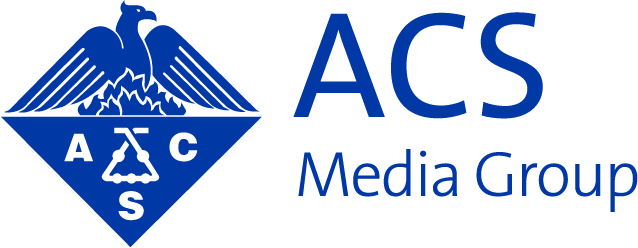For an advertisement to be successful, it needs to be viewed as distinct from the onslaught of redundant messages used by market competition. This is easier said than done: writing creative copy that is compelling for a potential customer takes time, a luxury most professionals don’t have enough of in this fast-paced marketing world. Writing high-quality ad copy needs to attract, captivate and educate your audience, and it starts at the right marketing phrases and words to use.
To help you choose what will stand out, we’ve compiled a list of what to avoid: trite and overused marketing phrases frequently found in copywriting, public relations, and advertising. While there may be some occasions where these words are a good fit, reducing your use of is a great first step on the road to original, high-quality content.

Here is our list of marketing words and phrases that should be eliminated from your lexicon.
Next Generation:
• Why people use it: This phrase is used to describe a product that has been developed using the latest technology and will probably replace an existing product due to its technological leap forward.
• Why you shouldn’t use it: This phrase has been in use for some time now, and what used to be next generation is most often… current generation. Continuing to use ‘next generation’ to describe the latest and most advanced product can be confusing for consumers, too, as they may not understand which next generation is the “real” next generation.
Unique:
• Why people use it: Marketers rely on this word heavily in an attempt to show how out of all the products and services out there, theirs is one-of-a-kind and unlike anything else.
• Why you shouldn’t use it: Just because a product is unlike anything else, does not necessarily mean that it is a better fit for your potential customers. In addition, this word has become heavily overused. With everything being called unique, not a lot lives up to the meaning of the word. Our tip? Ask yourself why you think your product is unique. That explanation is often more valuable to prospective customers and should be incorporated into your copy instead.
Innovator/Innovative:
• Why people use it: This word describes a person or product that introduces new, original, and advanced methods or ideas. (There are no bonus points for using both unique and innovative in the same sentence.)
• Why you shouldn’t use it: Simply, these words have been overused and thus, rendered largely meaningless. True innovation means that something was so original that it broke new ground. Very few products or services meet this basic benchmark, and if yours did, then the science behind it is going to be much more attention-grabbing and won’t need the word ‘innovative’ in front of it.
Take a look at Illumina’s website. Many would classify Illumina as innovative, unique – in the next-generation sequencing space! But their website is clear, to the point, and largely avoids fluff language.

Disrupter/Disruptive:
• Why people use it: If you’re not an innovator, you can still be a disruptor right? Marketers use this phrase a lot to say how they’ve created a new market or space and in the process, completely re-imagined or eliminated an earlier technology.
• Why you shouldn’t use it: It’s hard to intuitively understand if disruption is beneficial for potential customers. Most customers don’t actually want to be disrupted, and many feel there is nothing wrong with incremental improvements. True disruptive products change an entire marketplace, which may not necessarily be a good thing. In addition, products that do this can be rare and expensive. Uber wasn’t exactly an inexpensive option when it launched: In San Francisco it was 1.5x more expensive than taking a regular cab.
Leader/Leading:
• Why people use it: It conveys years of experience, expertise in an industry, and infers you’re a cut above the competition.
• Why you shouldn’t use it: It is devoid of the reason why your company is a leader and can come across as self-centered. If you have qualifications that make you better than your competitor, say that. Odds are they’re using “leading” without that justification, too, and now you’ll offer a prospective customer more knowledge about your services than they are.
Solutions:
• Why people use it: This word has a number of different meanings, but the jargon we’re referring to is when solutions are conveyed as a way to solve a problem or difficult situation. Ultimately, this is what customers are looking for when they want a product or service – the solution to a problem.
• Why you shouldn’t use it: The term is vague, boring, and not interesting enough to get people to investigate further.
Authentic:
• Why people use it: Authenticity has come to mean that a company isn’t necessarily trying to sell you something. They care about more than just sales: they want to do good in the world and are socially conscious.
• Why you shouldn’t use it: In addition to being overused, saying that your brand is authentic tends to make people think otherwise. After all, marketing is often argued as being inherently inauthentic! If you fully embrace authenticity, you won’t need to say it in your copy. Your potential customers need to learn it through their experiences with you, your reputation in the marketplace, and other branding efforts. So most likely, if you put it in your ad copy, no one is really going to be convinced.
So… Is there a list of the best marketing words and phrases to use?
We’ve all done it, but relying heavily on the marketing phrases and words above are surefire ways to get your campaign to blandly blend in among all of the others out there. So then, is there a list of better words to use? In short, yes, there are a ton.
But instead of picking and choosing the best to include, when writing copy, it’s more useful to remember exactly what the purpose of writing copy is: to attract, captivate and educate your audience. You can achieve this objective by remembering these three copywriting tips:
• Be specific.
Clearly state your value propositions and your selling propositions. In essence, explain to your potential customers why your product is “unique” or “innovative” without using those overused marketing words in your copy.
One great “real world” example of advertising with unique value proposition comes from Uber.
Their value is clear and explicit:
“One tap and a car comes directly to you; your driver knows exactly where to go; payment is completely cashless.”
Everything that makes their service unique is upfront and easy to understand. Would you pay attention if it started with:
“Uber is a leading company in the transportation space, disrupting the way you travel…?” Queue the eye glaze.
• Show, don’t tell.
By telling a potential customer something about your product, you may, in fact, be pushing them in the opposite direction. This can certainly be true when including words like “authentic” in your copy. Instead of telling your audience that your brand is authentic, demonstrate how your brand is authentic.
Here is an example from Southwest Airlines.
While they say that use words like “open” and “honest” they show how they put these qualities into practice: with no extra fees. The price you see is the price you pay.
• Solve a problem.
With your value propositions and your unique selling propositions, your brand ultimately owns the solution to a problem for your potential customers.

But instead of telling them that you are simply the solution, identify with them about their problems and offer specific solutions with the customer in mind. This is a classic formula for marketing copywriting.
Here is a great example from MucinexDM:
It may seem overly simple, but the problem is introduced with a question and the solution, MucinexDM, is clearly provided. For customers needing relief, this straight-forward approach will resonate pretty quickly.
By avoiding the overused marketing phrases and words above, considering these copywriting tips, and keeping in mind your primary objective as a copywriter, you can help your advertising copy truly stand out among your competitors.




















